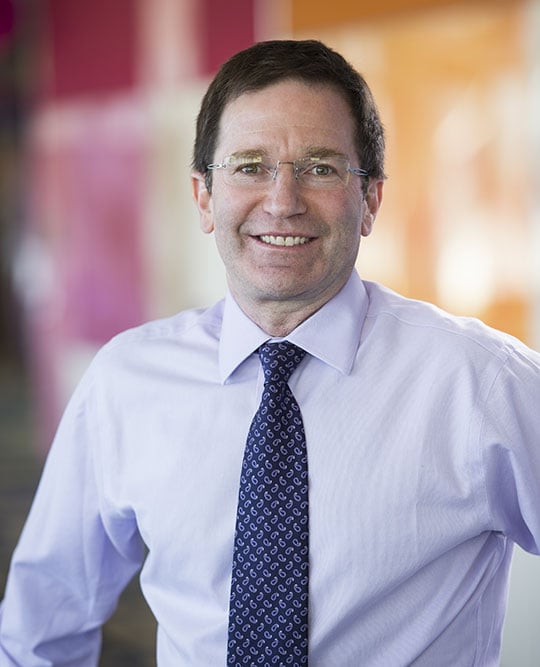- Doctors & Departments
-
Conditions & Advice
- Overview
- Conditions and Symptoms
- Symptom Checker
- Parent Resources
- The Connection Journey
- Calm A Crying Baby
- Sports Articles
- Dosage Tables
- Baby Guide
-
Your Visit
- Overview
- Prepare for Your Visit
- Your Overnight Stay
- Send a Cheer Card
- Family and Patient Resources
- Patient Cost Estimate
- Insurance and Financial Resources
- Online Bill Pay
- Medical Records
- Policies and Procedures
- We Ask Because We Care
Click to find the locations nearest youFind locations by region
See all locations -
Community
- Overview
- Addressing the Youth Mental Health Crisis
- Calendar of Events
- Child Health Advocacy
- Community Health
- Community Partners
- Corporate Relations
- Global Health
- Patient Advocacy
- Patient Stories
- Pediatric Affiliations
- Support Children’s Colorado
- Specialty Outreach Clinics
Your Support Matters
Upcoming Events
Child Life 101
Wednesday, June 12, 2024Join us to learn about the work of a child life specialist, including...
-
Research & Innovation
- Overview
- Pediatric Clinical Trials
- Q: Pediatric Health Advances
- Discoveries and Milestones
- Training and Internships
- Academic Affiliation
- Investigator Resources
- Funding Opportunities
- Center For Innovation
- Support Our Research
- Research Areas

It starts with a Q:
For the latest cutting-edge research, innovative collaborations and remarkable discoveries in child health, read stories from across all our areas of study in Q: Advances and Answers in Pediatric Health.


Sleep Program
Insufficient Sleep in Children
Parents and caregivers know their kids best. That’s why we put families at the center of every care team.

What is insufficient sleep?
Insufficient sleep means not getting enough sleep at night, which can cause several problems including decreased brain development, learning problems and more frequent negative emotions. It can also contribute to weight management problems, growth issues and increased frequency of illnesses. Insufficient sleep may also referred to as sleep deprivation.
Sufficient sleep means getting enough sleep to wake up in the morning feeling refreshed and being able to maintain energy throughout the day. The amount of sleep a child needs falls within a range, much like adults. Your child may require a different amount of sleep than their peers.
Sleep needs change with age. The following are typical amounts of sleep kids need in a 24-hour period:
- Infants (4 to 12 months): 12 to 16 hours (including naps)
- Toddlers (1 to 2 years): 11 to 14 hours (including naps)
- Preschoolers (3 to 5 years): 10 to 13 hours (including naps)
- School-aged children (6 to 12 years): 9 to 12 hours
- Adolescents (13 to 18 years): 8 to 10 hours
What causes insufficient sleep?
Many things can cause insufficient sleep or sleep deprivation, including medical problems, mental health issues and poor sleep hygiene (sleep habits). Some medical conditions that contribute to poor sleep include obstructive sleep apnea, periodic limb movements, excessive movement when sleeping and acid reflux.
Insomnia is the inability to fall asleep in a reasonable amount of time or waking up during the night and having trouble falling back to sleep. Symptoms may include insufficient sleep and not feeling refreshed after sleep. Insomnia can occur at any age. Depression, anxiety, trauma, life changes, hormonal fluctuations, poor sleep habits and an "overly active mind" can all contribute to insomnia.
Babies and younger children may have frequent night awakenings. Parents often describe the condition as a baby who won't stop crying during the night or a child who won't stay in bed throughout the night. These extended waking periods and disruptions in sleep often reduce the amount of sleep both the child and other family members get during the night. Night awakenings often occur because a child or baby has not learned to "self-soothe" and go back to sleep after natural wakings that commonly occur throughout the night.
What are the signs and symptoms of insufficient sleep?
- Problems paying attention
- Hyperactivity and impulsiveness (especially in younger children)
- Low energy
- Poor mood regulation (often upset and "moody")
- Decreased social skills
- Falling asleep at school and sleeping during short car rides
- Taking naps when no longer at a napping age, usually after about 5 years of age
- Trouble getting out of bed in the morning
- Fatigue
- Trouble falling asleep or unable to stay asleep
What tests are used to diagnose insufficient sleep?
The most important part of diagnosing insufficient sleep or sleep deprivation is talking with the family to get a thorough sleep history. This conversation should take place with a physician, nurse practitioner or psychologist that specializes in assessing and treating sleep disorders. Your child's doctor may also recommend further evaluations to fully explore all possible reasons for their poor sleep.
- Sleep log: To determine a child's baseline sleep patterns, doctors often request that a family keep a sleep log to record their child's bedtimes, wake times and night waking.
- Actigraphy watch: Another way to assess the amount of sleep a child gets is to have them wear an actigraphy watch, usually for a week while sleeping normally at home. This device looks like a wristwatch, but instead of telling time, it records your child's movement, how much sleep occurs and how long it takes to fall asleep. It also estimates how long your child stays awake throughout the night and the amount of light that is in the room.
- Overnight sleep study: In some cases, our doctors may recommend an overnight sleep study if they suspect that sleep-disordered breathing or excessive movement may be interrupting your child's sleep. Sleep-disordered breathing is when breathing partially or completely stops several times throughout the night. Your child's doctor may also order blood tests to see if a thyroid problem or acid reflux is causing them to get less sleep.
How is insufficient sleep treated?
Families often work with the sleep team's psychologist to resolve sleep problems. While this may involve more than one visit, it is often resolved with two or three visits. The psychologist helps families learn new habits and behaviors that support better sleep. In most cases, an important part of increasing sleep is improving sleep habits.
The first step in treating insufficient sleep is making sure that we properly diagnose and treat any medical problems that could reduce sleep. This begins with a visit to our sleep clinic with a physician or a nurse practitioner specializing in sleep treatments. After an exam, they will suggest possible treatments and may recommend additional tests or procedures.
Children with insomnia may benefit from cognitive behavioral therapy (CBT) strategies that help them fall asleep more easily and quickly. Treating night awakenings involves training infants and children to learn to fall asleep independently and soothe themselves back to sleep after their natural wakings during the night. In all cases, our sleep psychologists offer support for families interested in making sleep changes because we recognize that learning new skills and behaviors is often challenging for families.
Why choose us for treatment of insufficient sleep?
The Children's Colorado Sleep Program team has specialized expertise in treating sleep problems in children and adolescents. Our specialists are known internationally for their sleep research and sleep treatments. The team is made up of sleep experts trained in different aspects of sleep treatments, including physicians who specialize in pediatric ear, nose and throat problems, sleep psychologists, nurse practitioners, physician assistants, respiratory therapists and dedicated sleep nurses.
We often coordinate care with other specialists and primary care physicians who are involved in each family's treatment. Most importantly, we have very caring staff members who are willing to listen to families and go the extra mile to improve your child's sleep and optimize their development.
- The Pediatric Sleep Council offers expert information and advice on baby and toddler sleep.
- The National Sleep Foundation provides information on healthy sleep as well as sleep disorders.
- The American Academy of Sleep Medicine (AASM) is the only professional society dedicated exclusively to the medical subspecialty of sleep medicine.
- The Sleep Research Society (SRS) is an organization for scientific investigators who educate and research sleep and sleep disorders.
- The Society for Behavioral Sleep Medicine is an organization focused on behavioral and psychological approaches to the prevention and treatment of sleep disorders.
Next steps
-
Would you like to learn more about us?
Learn more about the Sleep Program -
Do you have questions about your child’s condition?
720-777-6181 -
Are you ready to schedule an appointment?
Schedule an appointment

Compassionate care, wherever you are
We’re here when you need us. Telehealth appointments are available across every specialty, so you can get the high-quality care we’ve always offered from the comfort, privacy and convenience of home.
See if telehealth is right for you
Get to know our pediatric experts.

Jean Milholland, PA-C
Physician Assistant

Norman Friedman, MD
Otolaryngology, Sleep Medicine
Patient ratings and reviews are not available Why?

Heather Moore, CPNP-PC
Certified Pediatric Nurse Practitioner



 720-777-0123
720-777-0123




